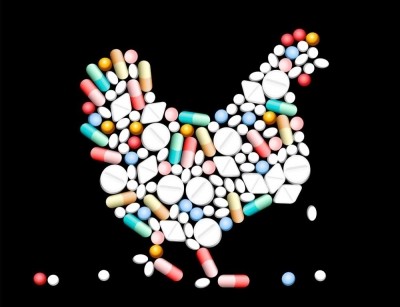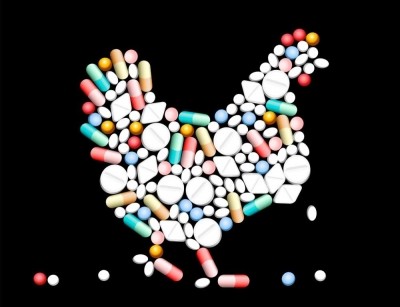'Premature and disproportionate' - FEFANA dismisses advice to EFSA on copper and antibiotic resistance

Researchers at Ghent University carried out the analysis, made public last month, on behalf of the European Food Safety Authority (EFSA). Pigs and piglets were the target animals, said EFSA, as they are the category of animals in which higher copper supplementation is currently authorized in feed in the EU.
The working group (WG) on the Revision of Maximum Content of Copper in Feed of EFSA’s FEEDAP Panel is in the process of drafting an opinion on the issue.
The regulatory managers at the EU Association of Speciality Feed Ingredients and their Mixtures (FEFANA) acknowledged the "huge amount of work" undertaken by the Belgian team, they also noted that the report is of good quality and that the authors have indicated important elements for hazard identification, However, the FEFANA experts stressed they have serious concerns about the ultimate findings of the SLR:
“The recommendation given is considered premature and disproportionate at this stage considering the very limited scientific evidence and the absence of a clear hazard characterization.
"The SRL does not allow to conclude on the impact of increasing levels of Cu in the diet of piglets and increased resistance to antibiotics even if some high levels of copper seems to increase specific resistance. The question remains: up to which level using Cu in the diet of piglet will not induce resistance?
"More research in this field is necessary and guidance on the methodology for generating and collecting those new data are welcome,” the FEFANA regulatory experts told FeedNavigator today.
Consultants' recommendations to EFSA
The Ghent University team found that, despite the narrow number of studies available from the SLR, the limitations in terms of results and methodological quality “do not unequivocally allow [demonstration of] the absence of a correlation between copper supplementation above requirements and development of antibiotic resistance in pigs under commercial farm practices.”
In addition, they found there is undoubtedly a genotypic relationship between both.
The academics did say more field studies are needed to address the issue, especially for the gram negative bacteria.
“For the time being, and in view of the inconclusive results, the recommendation might be not to increase the levels of copper supplemented in feed above allowances. Furthermore, considering the increasing research and interest on the matter in the latest years, it is recommended to repeat the SLR in future considering new approaches, if necessary,” added the Ghent University team.
EFSA said its experts are reviewing the results of the SLR:
“The findings of the report will be evaluated and considered by the experts of the WG and the FEEDAP Panel who will deliver their final assessment in the respective opinion. Until the opinion is finalized — expected deadline July 2016 - no preliminary conclusion will be disclosed,” a spokesperson told FeedNavigator.
The SLR is an update on a previous one conducted in 2012.
Background
In 2015, the European Commission requested a scientific opinion from EFSA on the maximum copper content in complete feed to fully meet the animals’ nutritional needs and to be safe for the animals, the consumer and the environment.
The mandate included the re-evaluation of copper in animal nutrition and the potential development of antimicrobial resistance which was initially assessed in a previous opinion of EFSA’s FEEDAP Panel delivered in 2012.
EFSA outsourced the task. Ghent University was awarded the tender.













